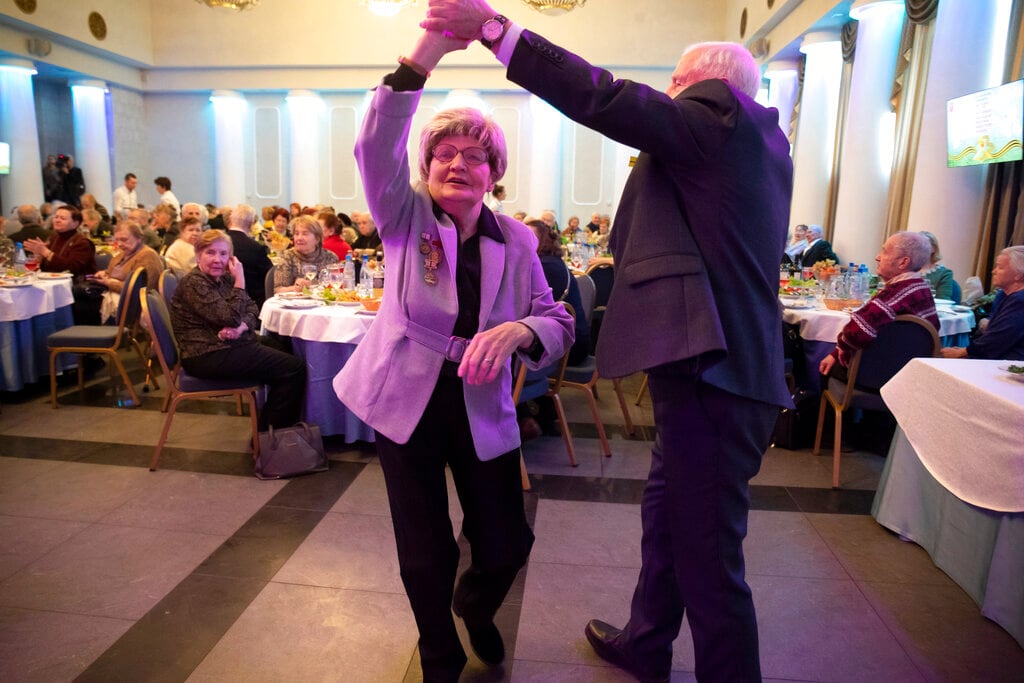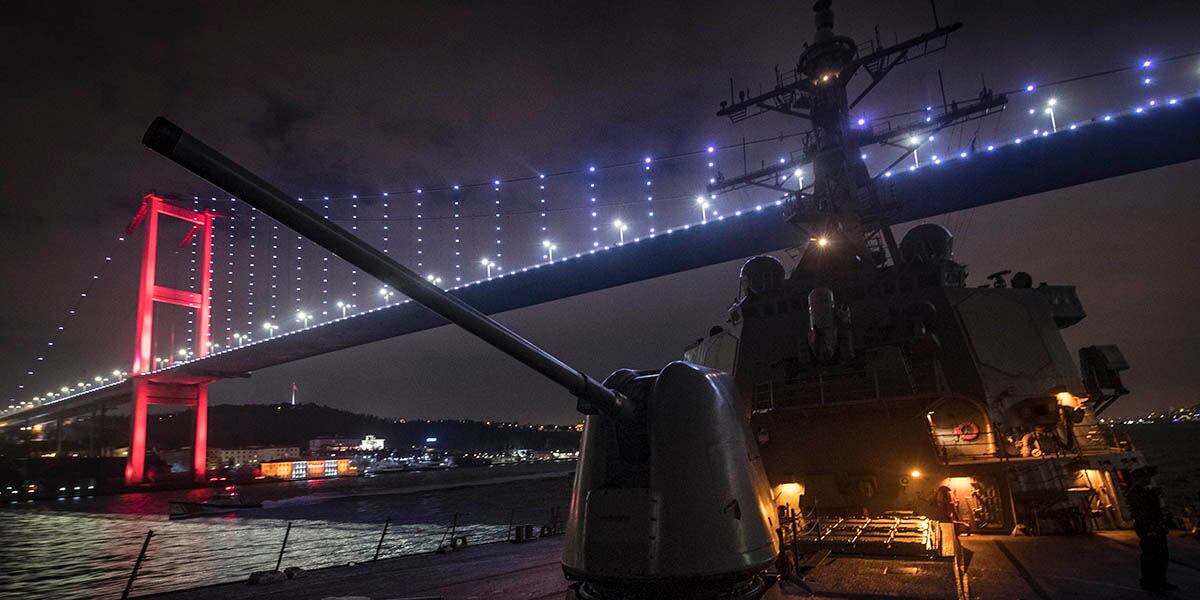ST. PETERSBURG, Russia — Tamara Chernykh, 81, still can’t forget those tiny pieces of bread that her granny used to put under her pillow as a night treat for a starving four-year-old girl in besieged Leningrad during the deadly winter of 1941-1942.
Chernykh's grandmother, who gave the bread out of her own scanty food ration, said they would bring good dreams. What her granny didn't tell her was that while sharing her bread with the little girl she was dying from starvation herself.
The siege of Leningrad lasted nearly 2 ½ years until the Soviet Army drove the Nazi troops away on Jan. 27, 1944.
Estimates of the death toll vary, but historians agree that more than one million Leningrad residents died of hunger and air and artillery bombardment in one of the most horrifying episodes of World War II.
On Sunday, Russian President Vladimir Putin, a native of the city, led events marking the 75th anniversary of the end of the blockade of the city that has regained its old name, St. Petersburg.

When the advancing Nazi troops closed the circle around Leningrad on September 8, 1941, Chernykh’s family consisted of six members living together: herself, her mother, her 12-year-old brother Valentin, her mother’s sister and her four-month-old baby daughter, and the granny.
As the city faced daily air raids and artillery barrage, the family moved to a basement downstairs, where all six slept together on a full-size bed, with the baby in the middle to keep her warm.
Like most Leningrad residents, they had to survive on a daily ration of just 125 grams (less than 0.3 pounds) of bread and whatever other food they could buy or exchange at local markets after selling their belongings.
In the daytime, Chernykh and her baby cousin mostly stayed put under several blankets in the darkness. There was no heating during the first and the coldest winter of the siege, when temperatures outside sometimes plunged to -40 degrees C (-40 degrees F).
To distract the children from hunger, cold and bombardments, Chernykh's mother kept reading them stories and poems. Everyone's favorite fairy tale at the time was the one about the magic tablecloth that brought any food desired.
"We imagined how that tablecloth would give us meat, fish, soup, porridge," Chernykh told The Associated Press at her apartment. "As for me, I always had a special dream about a sugar roll with cream."
Chernykh's granny was the first to die.
"One morning I woke up to not find her in our bed," she said. "My mom said that granny went to see a doctor, but somehow I understood the truth and cried bitterly."
Chernykh's brother, who helped extinguish fire bombs dropped by Nazi planes, got infected with brain fever and died in a hospital. Miraculously, Chernykh's baby cousin, Galina, survived even though her mother lost her breast milk during the siege.
"They say she survived thanks to the chocolate that Galina's father, who fought the Nazis outside Leningrad, brought now and then from his army food ration," Chernykh said.

After the siege, Chernykh graduated from a medical school, worked for the Red Cross, became an honorable donor and wrote poetry about the siege. She has two children and five grandchildren, and at her age is still full of energy, doing up to 10 kilometers (6 miles) Nordic walking daily.
As the city prepares to mark the 75th anniversary of complete liberation from the Nazi siege, Chernykh joined other survivors to remember its hardest moments. They maintained a moment of silence to remember the victims, toasted to the victory over Nazis, sang war songs and danced.
Natalya Malacheva, 68, says her family still keeps a pledge taken by her grandmother during the siege.
Malacheva's grandmother and a relative promised on Jan. 1, 1942 that if they survive, they'd take care of the grave of Malacheva's uncle, then a 21-year-old medical student who died from hunger and pneumonia.
“To this day our family takes care of the grave,” Malacheva said. “I bring my grandchildren there on important memory dates.”
RELATED

Chernykh and her remaining family were evacuated from the city in September 1942, travelling by a barge along the Ladoga Lake that was constantly barraged by Nazi warplanes.
She remembers the joy of a warm porridge with butter that was served before the ride — but still shudders at the memory of another barge with hundreds of people on board that followed theirs being hit by a Nazi plane.
“A sailor on our barge had to cut the towing cable to save our barge from sinking along,” she said.
“Nobody from the sunken barge survived. It was dreadful to see only a suitcase that popped up on the waves.”





